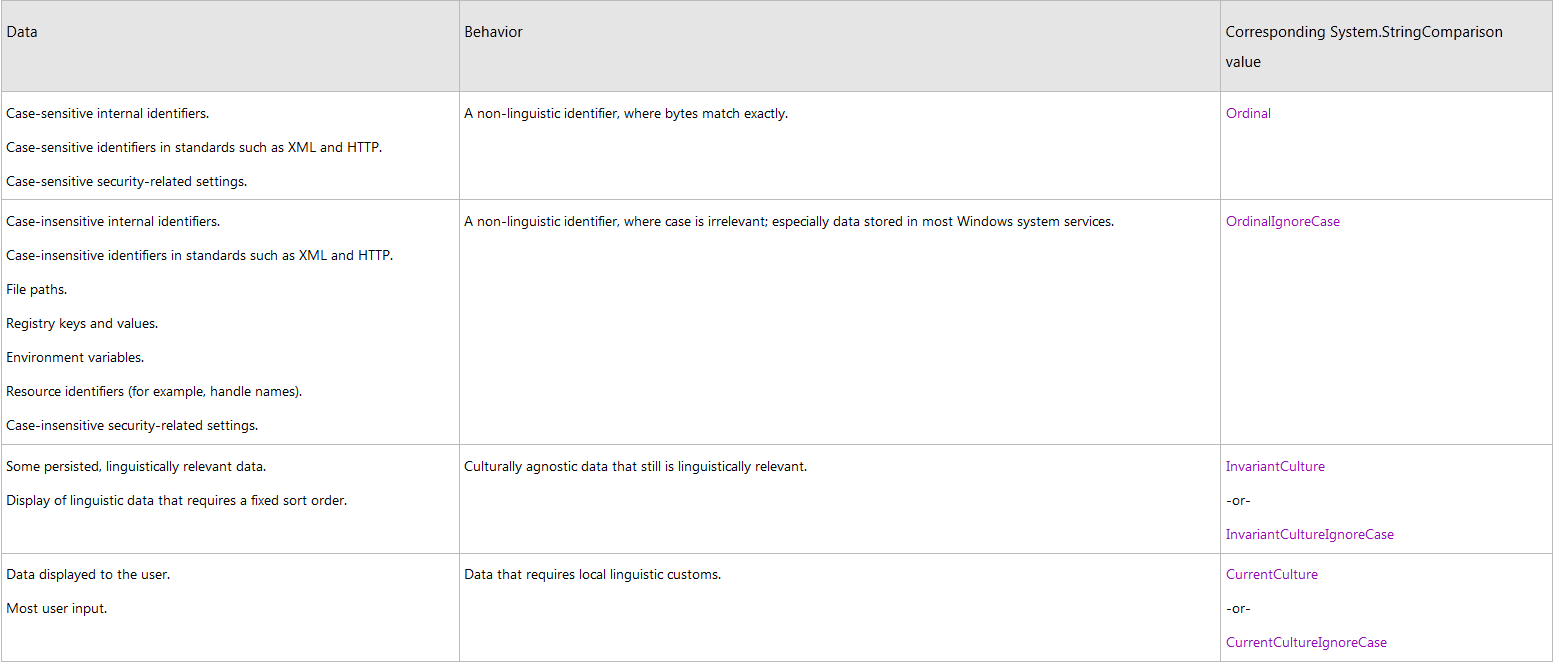const string softHyphenPlusHyphen = "\xAD\x2D";
Console.WriteLine("softHyphenPlusHyphen.IndexOf(softHyphenPlusHyphen,
StringComparison.Ordinal): " +
softHyphenPlusHyphen.IndexOf(softHyphenPlusHyphen,
StringComparison.Ordinal));
Console.WriteLine("softHyphenPlusHyphen.IndexOf(softHyphenPlusHyphen): " + softHyphenPlusHyphen.IndexOf(softHyphenPlusHyphen));
Best Practices for Using Strings in the .NET Framework讲了如何在.net中正确的使用字符串。摘要如下:
When you develop with the .NET Framework, follow these simple recommendations when you use strings:
Use overloads that explicitly specify the string comparison rules for string operations. Typically, this involves calling a method overload that has a parameter of type StringComparison.
Use StringComparison.Ordinal or StringComparison.OrdinalIgnoreCase for comparisons as your safe default for culture-agnostic string matching.
Use comparisons with StringComparison.Ordinal or StringComparison.OrdinalIgnoreCase for better performance.
Use string operations that are based on StringComparison.CurrentCulture when you display output to the user.
Use the non-linguistic StringComparison.Ordinal or StringComparison.OrdinalIgnoreCase values instead of string operations based on CultureInfo.InvariantCulture when the comparison is linguistically irrelevant (symbolic, for example).
Use the String.ToUpperInvariant method instead of the String.ToLowerInvariant method when you normalize strings for comparison.
Use an overload of the String.Equals method to test whether two strings are equal.
Use the String.Compare and String.CompareTo methods to sort strings, not to check for equality.
Use culture-sensitive formatting to display non-string data, such as numbers and dates, in a user interface. Use formatting with the invariant culture to persist non-string data in string form.
Avoid the following practices when you use strings:
Do not use overloads that do not explicitly or implicitly specify the string comparison rules for string operations.
Do not use string operations based on StringComparison.InvariantCulture in most cases. One of the few exceptions is when you are persisting linguistically meaningful but culturally agnostic data.
Do not use an overload of the String.Compare or CompareTo method and test for a return value of zero to determine whether two strings are equal.
Do not use culture-sensitive formatting to persist numeric data or date and time data in string form.
下表是如何选择StringComparison:
